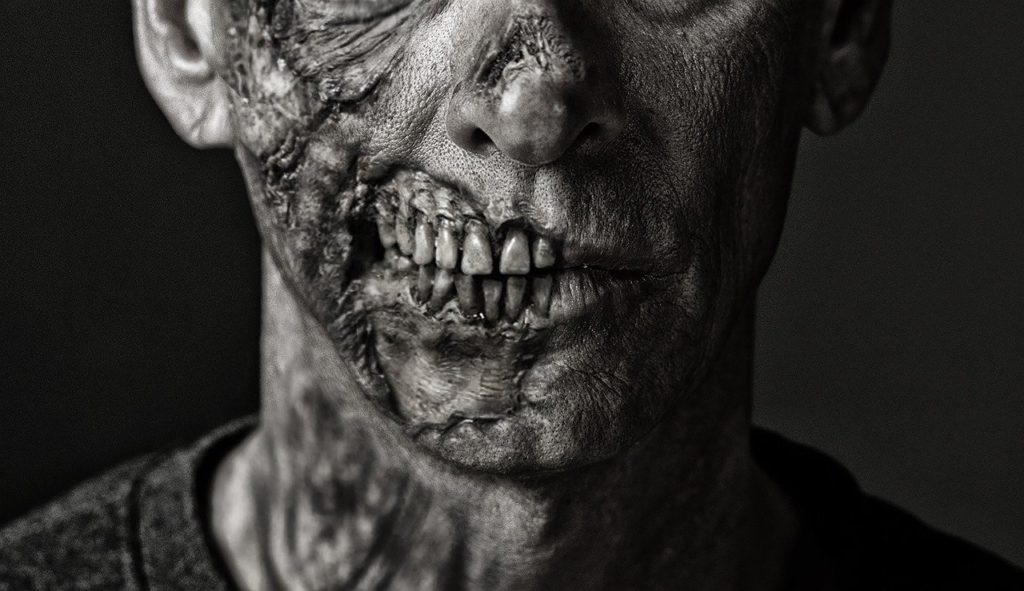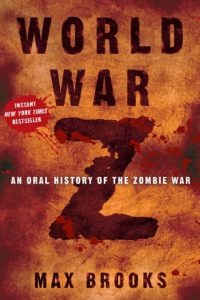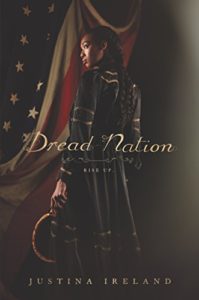Most popular articles for January 2024:
What genre do zombie books and novels fall into? Are zombies considered to be science fiction, fantasy or horror? These are common questions among fans of undead fiction, and they’ve spurred endless debate among readers and writers alike.
Here’s the short answer: From a genre standpoint, zombie books could be considered science fiction, horror, post-apocalyptic, fantasy, western — even romance. They can also fall into their own category, without a “parent” genre. It all depends on how the author incorporates the zombie element, and what kind of story they choose to tell.
With that introduction out of the way, let’s take a closer look at frequently asked question #1…
What Genre Do Zombie Novels Fall Into?
So, what genre do zombies fall into? This can vary from one book to the next. These days, most zombie novels stand alone in their own subgenre, which might fall under the umbrella of sci-fi or horror. Again, it depends on the type of story being told.

This will make more sense if we consider the definition of the word “zombie.” There are fictional / literary definitions for this word, along with cultural and mythological definitions.
The Cambridge Dictionary offers these definitions of zombie:
- “a dead person who is believed, in some Caribbean religions, to have been brought back to life by magic”
- “(in stories) a frightening creature that is a dead person who has been brought back to life, but without human qualities”
In the first definition (cultural), magic is used to resurrect the dead. If I wrote a zombie apocalypse novel that relied on magic, it might fall into the fantasy genre — especially if I incorporated other “monsters” or supernatural beings. It could also be considered supernatural horror.
In the second definition (fictional), the dead could be brought back to life by a wide variety of causes. And as readers, we may or may not understand the reason for this resurrection. The author might explain how the zombies came to exist, or leave us in the dark.
If the outbreak is explained in scientific terms, the zombie novel could also be considered science fiction. If no explanation is given, the book might be categorized as horror, post-apocalyptic, or plain-old “zombie fiction” — depending on the story.
Are Zombie Books Considered Science Fiction?
This brings us to frequently asked question #2: Are zombies considered to be science fiction?
They can be.
Let’s say I write a novel in which a government-backed scientific research group discovers a way to reanimate corpses. The military weaponizes the discovery (of course) and uses it against an enemy nation. It’s the ultimate secret weapon, turning the enemy’s dead soldiers into undead flesh-eaters.

Things eventually go sideways, and what was intended to be a targeted strike turns into a global zombie apocalypse.
So let me ask you:
- Can we consider this to be a science fiction novel?
- Are the zombies in this book a sci-fi element?
The answer to both questions is yes. If the apocalypse has a scientific origin (and the science does not currently exist in the real world), the book clearly meets the definition of sci-fi.
Or maybe I skip over the origins of the zombie outbreak. Maybe I only hint at the origins, in the form of backstory or character flashback. In this case, my zombie book probably wouldn’t meet the definition of science fiction — because I didn’t want it to be.
Many of the best zombie books use a virus (or some other infectious agent) to set the outbreak into motion. In these stories, the virus can be spread like many other types of germs, through the saliva of the infected.
A zombie bites a survivor. The survivor escapes but later succumbs to the infection. And just like that, we have a new member of the zombie horde.
This kind of story incorporates elements of biology, virology and epidemiology. Thus, it has a scientific component and could definitely be considered science fiction.
Horror, Romance, Comedy and More
Many zombie books could also be classified as horror, while others have less of a horror component. If the book is exciting but not particular scary, it might be more of a post-apocalyptic survival tale. Here again, a lot depends on the author’s intentions.

In other cases, an author might choose to skip over the science and origin story and focus on the horror. The author might aim for a creepier, more chilling kind of zombie novel. This kind of book could certainly labeled as horror.
And remember, a book can be more than one thing. Some books straddle multiple genres.
Diana Rowland’s My Life as a White Trash Zombie includes elements of mystery, horror, humor, and even a light dusting of romance. Dread Nation, by Justina Ireland, combines post-Civil-War historical fiction with zombies. You get the idea.
A book doesn’t have to be all one thing or the other. It can blend multiple genres. And it might be better for doing so. It might offer something fresh and original, as in the Dread Nation example.
I often tell people, half-jokingly, that my own novel The Holdbacks is an “apocalyptic YA horror-thriller of a love story.” Because it checks all of those boxes. It blends multiple genres, as I intend it to do.
Bottom line: If you’re writing a zombie book, don’t get too hung up on genre labels. Instead, focus on telling a great story. Try to do something original with your story, something readers haven’t seen before. And when reading zombie fiction, put the categories and classification aside, and just enjoy the story!
WendyW
AWESOME ARTICLE! Thank you! In the end that is exactly what we should aim to do!